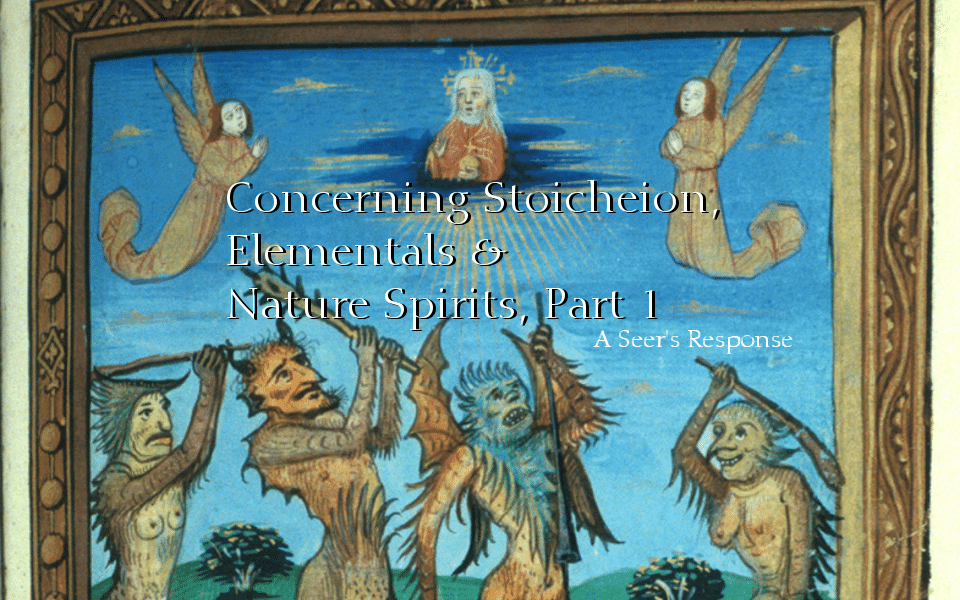Have you ever wondered what the Bible has to say about elemental spirits? In this blog post, we will explore this intriguing topic and uncover the biblical perspective on elemental spirits. By gaining a deeper understanding of this concept, we can strengthen our faith and better navigate spiritual realities in our daily lives.
Many believers may be curious about the significance of elemental spirits mentioned in the Bible and how it relates to their walk with God. By delving into this subject, we can discern the spiritual forces at work in the world around us and equip ourselves with knowledge that will help us stand firm in our faith. Join us on this exploration of elemental spirits in the Bible and discover the valuable insights it offers to believers seeking to deepen their understanding of spiritual warfare.
Unveiling the Mystery: Understanding Elemental Spirits in the Bible
What are Elemental Spirits in the Bible?
In the Bible, elemental spirits are spiritual beings or forces that are believed to have control over the elements of the natural world. These spirits are often associated with pagan beliefs and practices, and are sometimes referred to as “elemental powers” or “elemental forces” in various translations of the Bible.
The concept of elemental spirits can be found in several passages of the Bible, particularly in the New Testament. For example, in Colossians 2:8, the Apostle Paul warns against being taken captive by “philosophy and empty deceit, according to human tradition, according to the elemental spirits of the world, and not according to Christ.”
Similarly, in Galatians 4:3, Paul speaks about how we were enslaved to the “elemental spirits of the world” before coming to know God. These references suggest that elemental spirits are opposed to the gospel message and seek to lead people away from the truth.
In some interpretations, elemental spirits are seen as malevolent entities that seek to deceive and harm humanity. They are thought to exert influence over the physical world and may be associated with natural phenomena such as storms, fires, or earthquakes.
It is important to note that the concept of elemental spirits in the Bible is not universally agreed upon among scholars and theologians. Some interpret these references metaphorically, as symbolic representations of worldly distractions and false teachings that can hinder one’s spiritual growth.
Overall, the concept of elemental spirits in the Bible serves as a warning against straying from the true faith and being led astray by deceptive influences. Christians are encouraged to stay rooted in Christ and to avoid being swayed by the teachings of the world and the powers that seek to oppose God’s truth.
What does the Bible say about elementals?
The Bible does not specifically mention elementals. In the context of Christian beliefs, elementals are not a concept that is directly addressed in the biblical text. The focus of the Bible is primarily on God, creation, humanity, redemption, and spiritual matters concerning faith and salvation. While some individuals may interpret certain phenomena as related to elementals, it is not a prominent theme within the Bible. Christians generally believe in the existence of angels and demons as spiritual beings, but elementals are not typically included in traditional Christian theology derived from the Bible.
What does elemental spirits mean in Colossians 2 8?
In Colossians 2:8, the term “elemental spirits” refers to spiritual forces or entities that are considered to be elemental or basic in nature. These could include demonic or angelic beings that are associated with the elements of the natural world.
In this context, the apostle Paul is warning the Colossians to beware of philosophies and deceptive teachings that are based on human tradition and the elemental spirits of the world, rather than on Christ. He emphasizes the importance of being rooted and built up in Christ, and not being misled by empty deceit that is based on these elemental spirits.
Overall, the reference to elemental spirits in Colossians 2:8 serves as a caution against any teachings or beliefs that do not align with the truth of the Gospel and the supremacy of Christ.
What is an elemental demon?
In the context of the Bible, there is no explicit mention of an “elemental demon.” The term “demon” in the Bible typically refers to evil spirits or fallen angels who oppose God and seek to harm humans. However, some people may use the term “elemental demon” to refer to spiritual entities associated with the elements (earth, water, air, fire) in certain belief systems or mythologies outside of biblical teachings. It’s important to note that such concepts are not found in mainstream Christian theology or the Bible.
What religion believes in elementals?
In the context of the Bible, Christianity does not specifically believe in elementals as a part of their religious teachings. Elementals are typically associated with beliefs in certain forms of paganism, New Age spirituality, and esoteric practices rather than mainstream Christian doctrine. Within Christian theology, the focus is on the belief in one God, the Trinity (Father, Son, and Holy Spirit), and concepts such as sin, salvation, and resurrection.

